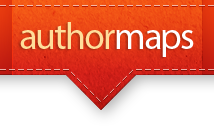What is Metadata?
Working both as a librarian and as a computer network manager, one of the most annoying things in my job(s) was learning a second vocabulary for computing.
Every field of study has its jargon. So, at the end of this post, I’ll tell you how I think librarians and computer programmers came to use such different words for such similar things. But first, a look at library metadata.
Library science is the study of all existing fields of knowledge. For lack of a word, let’s call that the study of “meta-knowledge”. Metadata is a way of describing the meta-knowledge that librarians work with.
Librarians who create metadata
Catalogers are technical services librarians who work with the print materials, digital files, and media that come into a library. Catalogers create metadata for “documents” provided directly to patrons or for public services librarians to use in answering questions from their library patrons.
If you have ever used a library catalog, you are already familiar with metadata. There is no need to feel intimidated by this word!
Likewise, if you’ve ever used back-of-the-book indexes to non-fiction, you’ll also be familiar with some kinds of metadata already.
For example, a names index or a bibliography in a scholarly book is metadata. So is a subject index.
Visible and invisible metadata
Basically, library metadata is a standardized vocabulary for describing any document, i.e. printed materials, books, digital files, artwork, or electronic media that can be found somewhere in a library or that’s for sale to those who want to read, view, or listen to it —or if it’s rare, bought by collectors who want to own it.
In essence, metadata is the description of each piece of meta-knowledge that librarians provide access to for library patrons. Knowledge can be gained from either non-fiction or fiction.
Common metadata that’s visible in a library catalog includes: author name, title, the ISBN number, format, date of publication, name of the publisher, number of pages or “locations” in the document, a list of up to six terms describing the contents of the document, and a unique number (accession number or call number) that tells library staff and patrons where the book can be found in a library.
But be aware that library catalogers add a number of other pieces of data to electronic library catalog records that public service librarians, but not the public, will be able to see. The same thing is true for publisher and book-seller metadata that gets created by computer whizzes. We, the public, don’t get to see all of the metadata created by librarians or booksellers.
Still, each of these two groups uses a different vocabulary for their metadata.
For example, what librarians call “knowledge,” computer programmers call “data”. What librarians and book indexers call “subject headings,” programmers call “BISAC codes”.
Why different terms for similar things?
One reason catalog records for documents and publishing industry metadata for documents use different terms is that at one time there was a generation gap between computer ‘geeks’ and librarians.
Most librarians were slow to recognize the use of computers in the library. Some library directors I met thought that computers should simply replicate the 3 x 5 in cards in the old card catalogs in libraries.
They could see only that digital records would save space in their library building. They thought electronic library catalogs were created just to let other librarians know what was in their library.
Some of us foresaw many more advantages to electronic records, but none of us knew that much about computer programming. As a result, computer ‘geeks’ chose to create their own jargon and ways of doing things.
I once spent an hour explaining to a computer programmer why indexers and catalogers of print materials used the convention of placing “A,”An” or “The” at the end of book title. That convention of ignoring those three commonly-used first words of a title saved library patrons tons of time flipping through the card catalog or skimming a book index for a particular book’s title.
The programmer knew that a computer could be made to sort on the second word of a title as well as by the first word. He couldn’t see why he needed to move any of those commonly used first words to the end of a book’s title. He felt moving words around was a total waste of his time.
Nowadays, librarians are among the specialists who create metadata for publishers. So don’t fret too much about the differences in vocabularies or metadata conventions used.
Just look up a book like yours in a library catalog at your library or use an online library catalog. In a library catalog record, you’ll see what basic kinds of metadata you could use to help market your book or books. This metadata will be in the terms that you, like librarians, are most familiar with.
Next: Librarian and Publisher Metadata Differences






